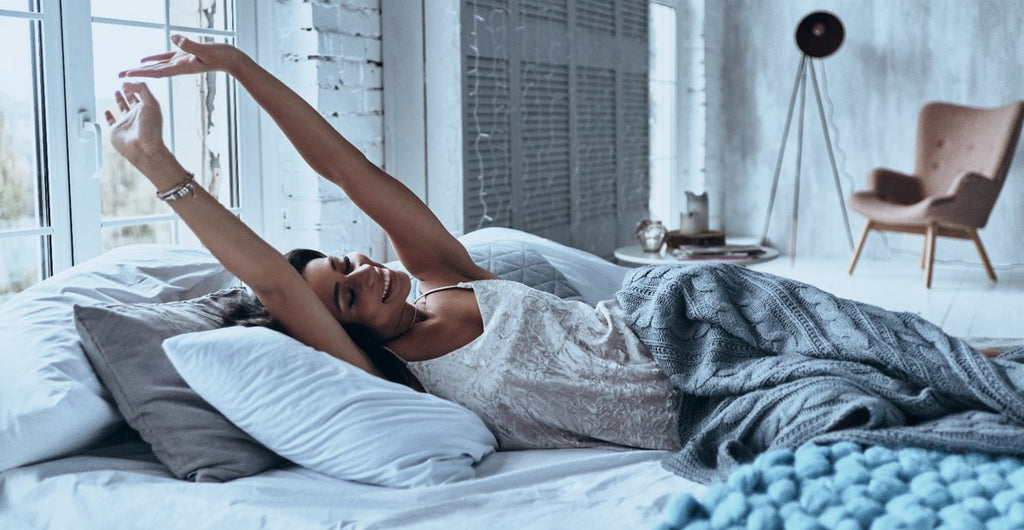
Sleep is vital to our everyday well being. Getting the right amount of regular sleep will make you feel more energised and motivated, helping you to achieve other goals that you might have for this year, such as doing more exercise,
Try to go to bed and wake up at the same time. It will help create a natural rhythm, and sleep-wake cycle for your body.
Also ensure you are getting the recommended amount of sleep for someone your age. For an adult this is 7-9 hours a night. For a guide on the recommended sleep time for different ages check out https://www.sleephealthfoundation.org.au/how-much-sleep-do-you-really-need.html
Look at what can influence the quality of your sleep, and work on making changes where needed.
- Have your evening meal at least two hours before bedtime. Having a full stomach can make it difficult to sleep.
- Avoid caffeine late in the day. Caffeine is a stimulant and although it may give us a much needed wake-up or boost during the day, it can also affect our sleep and contribute to us feeling more tired the following day. Although there are conflicting views most agree that coffee that should be avoided at least 3-7 hours before bedtime. Learn more in our Blog “Is how much coffee you drink affecting your sleep” from September 19 which can be found below.
- Likewise try to avoid alcohol at least four hours before bed. Although alcohol may help you get too sleep, it will disrupt your sleep during the night and is associated with more frequent waking up.
“Another reason people get lower-quality sleep following alcohol is that it blocks REM sleep, which is often considered the most restorative type of sleep. With less REM sleep, you’re likely to wake up feeling groggy and unfocused.” - sleepfoundation.org
- Have a set time before bed that you use to wind down and relax. Don’t overstimulate your body or brain. Avoid strenuous exercise, watching a scary or dramatic TV show, stop checking your work emails or social media….. Try a relaxing bath, mediation, reading or listening to soothing music.
- Dim your devices screens in the evening and try putting a curfew on your devices of 1-2 hours before bedtime. The longer the better, and avoid checking email or social media in bed. The blue light emitted from devices such as smartphones, tablets, computers and the TV, can at night all reduce the production of the sleep hormone melatonin. This may result in difficulty sleeping and increased drowsiness during the day.
Ensure your bedroom offers the best possible sleep environment
- Keep the bedroom dark at night and ensure the room temperature is not too hot or too cold.
“A cool 16-18°C (60-65°F) is thought to be an ideal temperature in a bedroom. Temperatures over 24°C (71°F) are likely to cause restlessness, while a cold room of about 12°C (53°F) will make it difficult to drop off.” - Sleep Council UK
- Ensure your sleep environment is healthy. Dust mites found in bedding are a common cause of asthma, allergies and asthma. Protect-A-Bed mattress, pillow and quilt protectors will provide an allergy barrier against any dust mites living in your mattress or quilts.
- Keep the bedroom for sleep and free of distractions. Where possible no televisions, computers, radio’s and phones.
It may take a little adjustment for you to get into a new routine, but just remember that if you are getting the right amount of sleep regularly you should feel better and have more energy for the things you want to achieve.
Sleep well, live well
